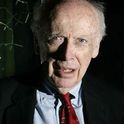It was a good year for swifts at St Vigor’s. All the nest boxes in the church tower were occupied, and multiple swiftlets hatched and fledged in each of them. From the end of April until the beginning of August, swifts flew over the village. First, you’d see one, then another, then, all at once, four or five more, soaring and swooping and screaming past the houses, back around the tower, then off again. Every Wednesday evening in swift season, half a dozen members of the Fulbourn Swifts Group could be found in the churchyard, watching them, rapt. Since Wednesday is also the evening for choir practice, you could enlarge the rapture by listening to their singing while watching the swifts, whose flight, as far as I’m concerned, defines summer’s joy.
When I was at infant school, we sang a hymn which became a caustic earworm for me this summer. I can inflict it on some of you just by quoting a couple of lines, “After the sun the rain, after the rain the sun: this is the way of life till the work be done.” We sang a lot about the natural world. The hymn taught us that the world around us is full of beauty and wonder, and we can trust that sunshine and rain, seedtime and harvest, will alternate until the end of time. We learned that, small as we were, our hearts were great, and we should be dauntless for the good. It is 2025 now. Spring floods and summer drought have become the norm. In the heatwave the small birds fall silent. The climate isn’t just changing, it has changed. How do we not despair?
The answer is that we do the little things. The churchyard grass at St Vigor’s was waving uncut until the end of July so that the cowslips and ox-eye daisies could set seed and any ground-nesting birds would be undisturbed. We persuaded South Cambs District Council to let us put solar panels on an inconspicuous section of the roof, hoping that someday they might soften and let us have more, better-placed, ones. We replaced the incandescent bulbs with LEDs. At St Nicholas’s we have a conservation project aiming to promote biodiversity in the churchyard. Bees continue to buzz in and out of the tower, and all four churches give a home to various species of bats. St John’s turns a blind eye to its molehills.
What is the difference that we’re making, though?
Five years ago, the Church of England’s General Synod formally recognised that “the global climate emergency we find ourselves in is a crisis for God’s creation and a fundamental injustice.” There was, naturally, a push back. There were groans from parishes where people already drowning in administration found they were being asked to do energy audits as well. The person who handles the energy audits in this diocese is named Sascha, and is so pleasant and enthusiastic that we’ve stopped complaining. Last week, Mr Hunter from the Diocesan Advisory Committee came over for lunch and we had an animated conversation about how the diocese can help our church school decrease its carbon footprint. “We’re doing a lot with churches, but we haven’t done anything with a school yet. You could be the first.” I think: our school has plenty of flat roof space, and it’s not listed. I think: so many class projects, and the children would love it. The climate crisis is something that our children think about every day.
Graham Usher, the Bishop of Norwich, is the lead bishop on environmental issues in the Church of England, a walker and a beekeeper. When we speak on the phone, he talks about the little things that smaller parishes are doing to cut their energy use. He also talks about the more ambitious projects that larger places can invest in. He talks about how vital it is for the Church to be seen to care about the Earth and all that lives upon it; how this is an issue of justice and moral leadership. This is what the people in our parishes feel urgently about, and the younger the people are, the more strongly they feel. He quotes Gus Speth of Yale University, who says that the top environmental problems are selfishness, greed and apathy.
Selfishness, greed and apathy. To these I’d add despair. And so, we begin with hope. Every little thing we do to use less, to mend more, to make space for other lives, is the work of hope. That’s the difference we make, and why it matters.













